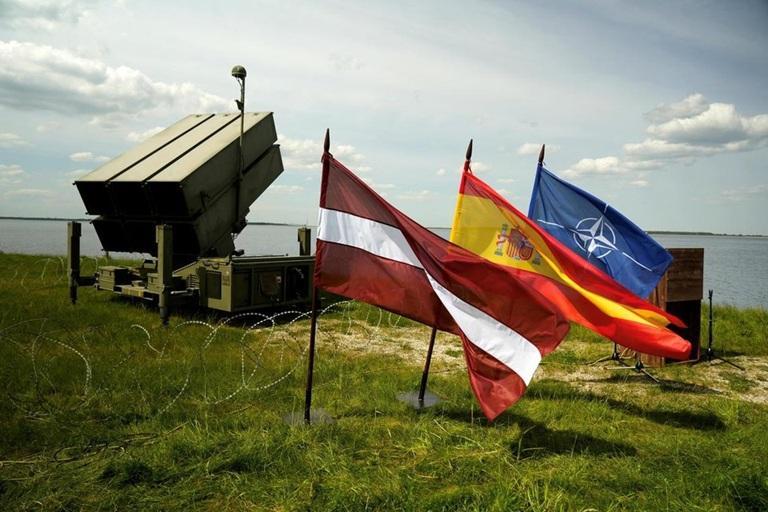Africa-Press – Eritrea. Nato is asking European member states to expand their ground-based air-defence capabilities fivefold, as the alliance races to fill a key gap in response to the threat of Russian aggression, according to people familiar with the matter.
The ramp-up will be discussed at a gathering of Nato defence ministers in Brussels on June 5, the people said on condition of anonymity as deliberations take place behind closed doors.
The fivefold target would be collective for the alliance’s European member states, with individual levels varying at the end, the people said. A timeframe for the air-defence effort was not clear.
Ministers this week are already set to approve one of the most ambitious commitments to raising weapons stocks since the Cold War as part of European and Canadian efforts to re-arm and scale back their dependence on US defence systems.
The Brussels meeting will lay the groundwork for a June 24 to 25 leaders summit in The Hague.
The boost in weaponry is part of broader ambitions to raise defence spending across the alliance.
Spurred by US President Donald Trump, Nato members are coalescing around a target of spending 5 per cent of economic output – 3.5 per cent on core defence and another 1.5 per cent in defence-related outlays on areas, including infrastructure, cyber defence and civilian preparedness.
“We are not at war, but we’re not at peace either,” Nato Secretary-General Mark Rutte said at a meeting in Vilnius on June 2. “We must continue to strengthen our deterrence and defence and that means pivoting toward a full war-fighting readiness.”
Nato members are in dire need of ramping up ground-based air-defence systems that shield against threats, including ever-more sophisticated drones, missiles and fighter jets, according to a senior European military official.
The alliance has scaled back on such systems over the past three decades as Nato’s attention shifted outside its Cold War-era sphere to focus on threats in the Middle East and North Africa, the official said.
German ramp-up
That calculus has changed since Russia’s 2022 invasion of Ukraine and mounting fears in member states on Nato’s eastern flank that the Kremlin is only years away from being able to attack.
Air-defence systems are central to the ramp up – and among the most expensive items the alliance is intending to stock up on.
Germany has offered to take the lead on joint European Union projects on air defence, as Brussels has urged members to jointly invest in areas of common interest.
Chancellor Friedrich Merz is determined to accelerate Berlin’s splurge in defence spending and invest billions of euros in additional air defence, according to a person familiar with the deliberations in Berlin.
That will include an expansion of the European Sky Shield initiative, which was launched by Mr Merz’s predecessor, Mr Olaf Scholz. The project, backed by Nato, aims to build a ground-based European air defence system geared towards downing ballistic missiles.
Responding to a request for comment, a Nato official said air and missile defence, long-range arms, logistics and land forces “are among our top priorities”.
“We continue to revise our force posture, modernise our command structure and strengthen our integrated air and missile defence,” the official said.
For More News And Analysis About Eritrea Follow Africa-Press







